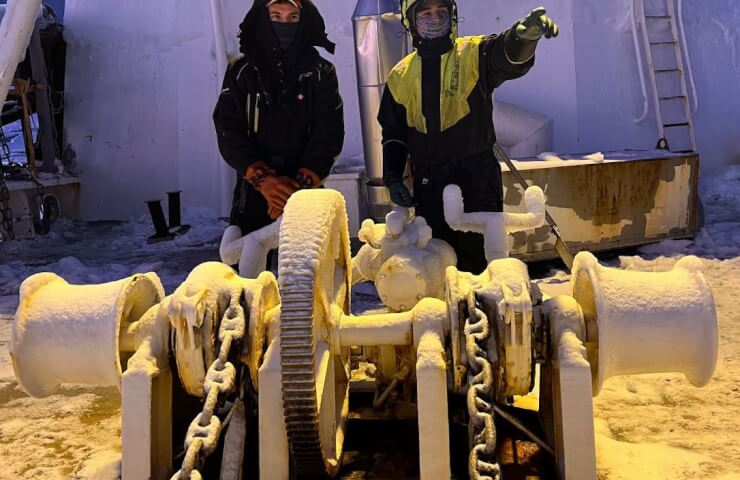Renat Besolov started fishing for crabs in Norway in 2015. During this time, Renat Besolov made sure that the salaries of Norwegian seafarers and Russia are very different. That is why many fishermen try their best to work under the Norwegian flag.
It should be noted that the wages of visiting fishermen did not always correspond to those received by Norwegian fishermen. Over the years, the Norwegian Seafarers' Union has received many complaints from foreign seafarers that foreigners are paid less than Norwegians. There were several high-profile trials about the infringement of the rights of foreigners, which were brought up by the local media, and this topic was raised throughout Norway.
In 2017, there were still some Norwegian shipping companies that tried to save money by attracting foreign seafarers, but this activity was dangerous - such companies faced heavy fines.
In 2018, all Norwegian companies switched to the same standard of payment for all seafarers, regardless of whether it is a foreign seafarer or a Norwegian - a local resident. Since this year, the minimum wage has been introduced by industry - in the fishing industry it is 205 NOK per hour (about $23). The minimum working time for a seafarer on a ship is 12 hours per day, or 360 hours per month (30 days). Thus, the guarantee fee for a sailor working on a Norwegian ship is $8280.
In 2021, a law was passed on the division of the net income of the vessel between the ship owner and all crew members participating in the fishery in that year.
Fishermen in Russia
- No minimum pay law for seafarers;
- Unlimited working hours. If in Norway it is accepted that a seafarer should work no more than 12 hours a day, then in the Russian Federation seafarers sometimes work more than 16 hours a day;
- Long hauls. This is written into the contracts. Russian sailors can spend 4-6 or more months at sea simply because of "such a contract." In this case, the money is frozen, and if the seafarer decides to go ashore earlier, he may not receive the salary he earned. In Norway, it is customary to work month after month. That is, a sailor spends one month on a ship, and then one rests at home, and thus works all year round;
- No laws to share the net profit of the company among the shipowner and crew members. In the Russian Federation there is such a thing as a share, but there is no division of net profit. The salary of a Russian sailor in the amount of one million rubles a month is completely unrealistic;
- Staff turnover. Almost all vessels in the Russian Federation have a high turnover. Jobs are consistently occupied by the same people where the salary of a sailor is about half a million rubles a month, on such ships the places are transferred by rollback, by recommendation and by family ties.
- Alcohol. On ships in the Russian Federation, this is a common fact. Drink a lot and drink often. In Norway, alcohol and drugs are strictly prohibited at sea.
- Norwegian vessels are required by law to deliver their catch only to Norwegian territory, from where further sales and exports take place seafood abroad. This law completely covers up all frauds with quotas and poaching. There is no such law in the Russian Federation, fishing vessels transfer their catch directly to the sea to cargo vessels, and those go to other countries and sell their products. Thus, by turning off navigation and going into complete radio silence, bypass the checking services.
More than 5,000 fishing vessels of various sizes and quotas are registered in Norway. Each resident, if desired, can open a company and go fishing. In the Russian Federation, only a few large companies operate in the Barents Sea, and it is problematic for residents of Murmansk to even get permission to fish with a pipe, not to mention buying their own small boat up to 15m in length.




